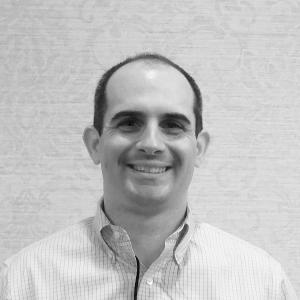Matt Campo

Collecting Stories at the National Working Waterfronts and Waterways Symposium 2018
Collecting Stories at the National Working Waterfronts and Waterways Symposium 2018 is a project of Maine Sea Grant, College of the Atlantic, the Island Institute, and the National Working Waterfront Network.
National Capital Contracting
Matt Campo is a senior research specialist at Rutgers University, where he has dedicated his career to the study and advocacy of sustainable urban planning, with a particular focus on waterfront communities. His expertise encompasses a broad range of issues related to coastal areas, including industrial development, commercial fishing, recreational use, and the challenges posed by climate change and sea level rise. Campo's work is characterized by a deep understanding of the complex dynamics that shape waterfronts and the diverse needs of the populations that depend on them. He has been actively involved in efforts to ensure public access to waterfronts while addressing social and economic inequities that often affect vulnerable populations in these areas. His commitment to integrating the perspectives of various stakeholders is a testament to his inclusive approach to urban planning. Campo's contributions to the field are not only academic but also practical, as he emphasizes the need for actionable information and case studies to inform policy and planning decisions.
Scope and Content
The oral history interview with Matt Campo provides a comprehensive overview of his insights into the multifaceted nature of working waterfronts in New Jersey. Campo discusses the diversity of waterfront uses, from industrial zones to commercial fishing villages and recreational spaces, and the importance of understanding the unique needs of each. He delves into the challenges of ensuring public access to waterfronts and the implications of climate change and sea level rise for coastal communities. Throughout the interview, Campo stresses the significance of considering the personal and emotional connections that people have to their waterfronts, which often go overlooked in urban planning. He also sheds light on the distinctive ice sailing community on the Navesink River, illustrating the variety of recreational activities that waterfronts support. Campo's emphasis on the need to integrate perspectives from different stakeholders is a recurring theme, as is his call for addressing social and economic disparities in waterfront areas. The interview is rich with Campo's advocacy for the preservation and advancement of waterfront communities, and his belief in the power of information and case studies to drive effective solutions to the complex issues facing these areas.
Please Note: The oral histories in this collection are protected by copyright and have been created for educational, research and personal use as described by the Fair Use Doctrine in the U.S. Copyright law. Please reach out Voices@noaa.gov to let us know how these interviews are being used in your research, project, exhibit, etc. The Voices staff can help provide other useful resources related to your inquiry.
The NOAA mission is to understand and predict changes in climate, weather, oceans, and coasts, to share that knowledge and information with others, and to conserve and manage coastal and marine ecosystems and resources. The Voices Oral History Archives offers public access to a wide range of accounts, including historical materials that are products of their particular times, and may contain offensive language or negative stereotypes.
Voices Oral History Archives does not verify the accuracy of materials submitted to us. The opinions expressed in the interviews are those of the interviewee only. The interviews here have been made available to the public only after the interviewer has confirmed that they have obtained consent.
